In the decoration of the building, the waterproof and heat insulation board is said to be the easy-to-understand board for building insulation. Insulation board is a rigid foam board made of polystyrene resin with other raw and auxiliary materials and polyatomic materials, heated by mixing while injecting the catalyst, and then extrusion molding, and has a moisture-proof and waterproof performance. To reduce the thickness of the external protective structure of the building, thereby increasing the indoor use area. Here's what we can do about the effect of waterproof insulation boards .
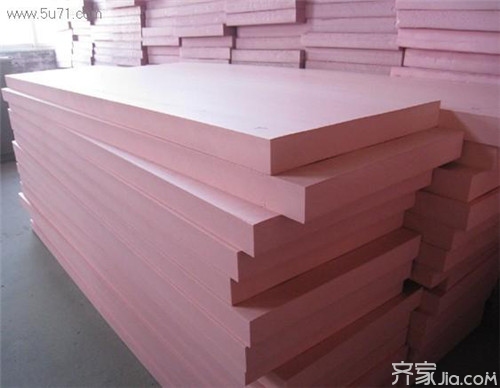
Waterproof insulation board
The easy-to-understand insulation board is a board for building insulation. The insulation board uses polystyrene resin as raw material plus other raw and auxiliary materials and poly- and plastic plates, which have moisture-proof and waterproof properties, and can reduce the thickness of the building's external protection structure, thereby increasing the indoor use area.
Insulation board performance characteristics: high fire resistance, high thermal insulation, relatively good strength, not easily broken, light weight, non-toxic harmless, long life, good water resistance, good interface, energy saving and safety.
Waterproof insulation board common types
One, XPS insulation board
XPS insulation board, which is a rigid foam board made of polystyrene resin plus other raw and auxiliary materials and poly-contents, heated by mixing while injecting the catalyst, and then extruded by extrusion molding. Its scientific name is extruded polystyrene foam (abbreviated as XPS), XPS has a perfect closed cell honeycomb structure, this structure makes the XPS board has very low water absorption (almost no water absorption), low thermal conductivity , high pressure resistance, anti-aging (normal use almost no aging decomposition phenomenon).
XPS advantages:
The XPS board has a dense skin and a closed cell structure inner layer. Its thermal conductivity is much lower than the same thickness of EPS, so it has better thermal insulation performance than EPS.
For the same building exterior wall, its use thickness can be smaller than other types of insulation materials; due to the closed structure of the inner layer. Therefore, it has good moisture resistance and can maintain good thermal insulation performance in a humid environment. It can be applied to buildings that have special requirements for insulation such as cold storage, and can also be used for exterior wall cladding materials such as tiles or stone. ;
Light texture, easy to use: XPS board's completely closed-cell foam chemical structure and its honeycomb physical structure, making it lightweight, high-strength characteristics, easy to cut, transport, and is not easy to damage, easy to install. Because of the way of fixing the extruded polystyrene with the base wall, mechanical fasteners are used. It can be used as usual in winter.
Good stability and corrosion resistance: During prolonged use, no aging, no decomposition, no harmful substances, its chemical properties are extremely stable, it will not be degraded due to water absorption and corrosion, and its performance will be degraded. Can maintain its superior performance, according to relevant information, XPS extruded insulation board can maintain excellent performance even if used for 30 to 40 years, and will not be decomposed or mildew, there is no volatilization of toxic substances.
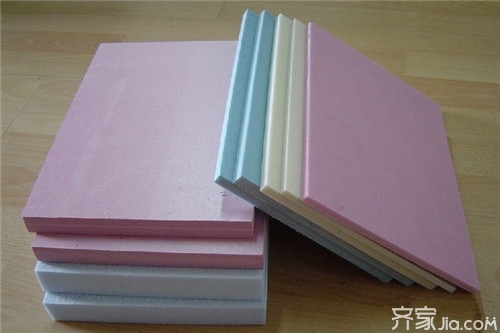
Second, polyurethane insulation board
1. Hard polyurethane board has low thermal conductivity and good thermal performance. When the bulk density of the rigid polyurethane is 35-40kg/m3, the thermal conductivity is only 0.018g~0.023w/(m.k), which is equivalent to half of the EPS, and is the lowest thermal conductivity coefficient among all the insulation materials. The rigid polyurethane board has moisture-proof and waterproof properties. The closed porosity of rigid polyurethane is more than 90%, and it is a hydrophobic material. It will not increase the thermal conductivity due to moisture absorption, and the wall will not seep.
2, rigid polyurethane fire, flame retardant, high temperature resistance. After the addition of flame retardant, polyurethane is a flame-retardant self-extinguishing material. Its softening point can reach above 250 degrees Celsius. It only decomposes at higher temperatures. In addition, polyurethane will burn on the foam surface. Forms ash, which helps to isolate the underlying foam. Can effectively prevent the spread of fire. Moreover, polyurethane does not generate harmful gases at high temperatures.
advantage:
High-efficiency insulation Because the thermal conductivity of blowing agents used in polyurethanes is much lower than that of air (insulation performance is good), polyurethane rigid foams perform better than other air-only materials such as mineral wool, glass fiber, and polystyrene. Moreover, its unique closed-cell properties and high resistance to gas diffusion make this a superior long-term insulation, and its thermal insulation properties can last for 20-50 years or more.
The excellent closed-cell structure of the anti-corrosive polyurethane rigid foam and the use of surface materials provide superior air and water resistance, and it can be made into a mosaic connection structure when it is molded, making it easy to assemble. It does not require extra insulation to protect against moisture, eliminating the need for many layers of insulation. These properties are not available with other insulating materials at the same time;
Due to the fact that polyurethane rigid foam acts as structural material at the same time in wide, lightweight, thin walls, the overall structure has the advantages of light weight, large span, and high load.
Polyurethane rigid foam has the best thermal insulation properties compared to other insulating materials. Therefore, thinner polyurethane sandwich panels can meet relevant regulations on building energy consumption limits, which allows the use of thinner panels during construction, which saves construction space; quality is stable and production efficiency is high. In the case of a sharp increase in demand, production of polyurethane sandwich panel factory production lines not only facilitates control of quality, but also brings with it a good economy and competitiveness.
Weather resistance is good, easy to install Polyurethane sandwich panels can be directly used for construction and installation after being prefabricated in the factory. No extra steps are needed, and construction is quick. And without taking into account changes in the weather, production is planned.
Disadvantages: Insulation board formulas, mix ratio disorder, instability, resulting in poor physical stability of the sheet, insulation effect is not good; spray type construction has not been resolved, it is difficult to guarantee the quality of the project.

Waterproof insulation board to pay attention to what
Insulation materials have been widely used nowadays. In addition to good insulation effects, insulation materials also have fireproof properties, which further facilitates people's lives.
When selecting the insulation material, in addition to ensuring that it has a good insulation effect, its fire-prevention ability is also very important. Selecting materials with superior fireproofing ability can better ensure the safety of the building and avoid the risk of fire.
Insulation structures made of different insulation materials have different fire performance. Thermal insulation structure is divided into fireproof type and non-fireproof type. Large-scale fire tests and foreign experience have proved that a complete insulation structure composed of B2 or above thermosetting organic foam does not increase fire and is a fire-resistant building material; thermal insulation structures composed of thermoplastic organic foam have the risk of increasing fire, and are non-fireproof building materials. .
If it is made of polyurethane or phenolic board insulation material, its insulation capacity is not in doubt, but it will be relatively poor in fire resistance, so if you use it in some places where it is easy to catch fire, it is better not to choose this kind of material. Thermal insulation material made of rock wool material has very good fireproofing ability, but there is itching when the fiber used in it and the slag between the slag and the skin are rubbed, so when construction It is best to use gloves and masks.
Editor's summary: The above is related to the role of waterproof insulation board, I hope to be helpful to everyone. If you want to know more related information, you can pay attention to this website information.
Decoration waterproof
Rockwool
Description:Rock wool for external wall insulation is specially designed for the thin ash system for the external wall insulation for the buildings,having certain vertical tensile strength,dimensional stability,high hydrophobic rate and low water absorption.Rockwool applies to news building with the foundation wall in concrete or brick wall compact structure or the external wall insulation or energy-saving re-modification of the existing buildings.Meanwhile,this product can be used as the fire barrier matching with the external wall insulation system to enhance the overall fire safety of building external wall.
Usage of Rockwool:Mainly apply to the building`s external wall insulation system consisting of the composite protective layer of rendering coat mortar and reinforced fiberglass mesh and mortar finishing layer or paint and connected and fixed to the base course wall through adhesive and bolts.
Also apply to non-transparent curtain wall insulation system.
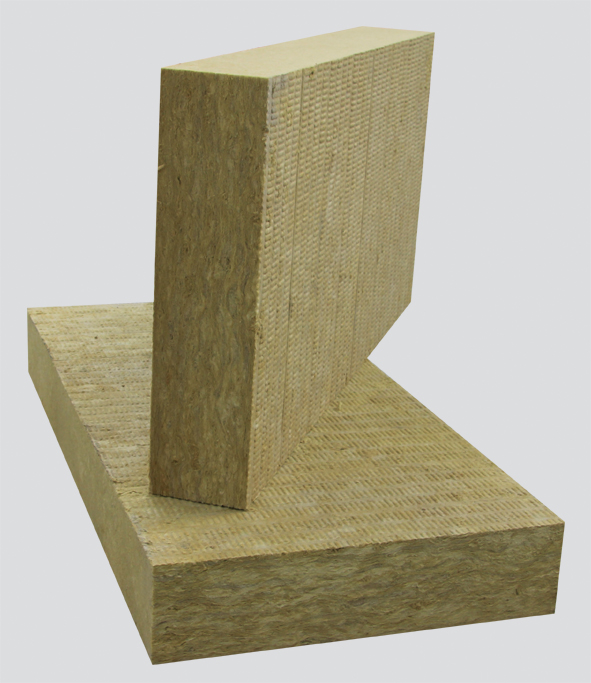
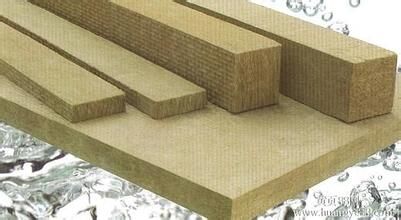
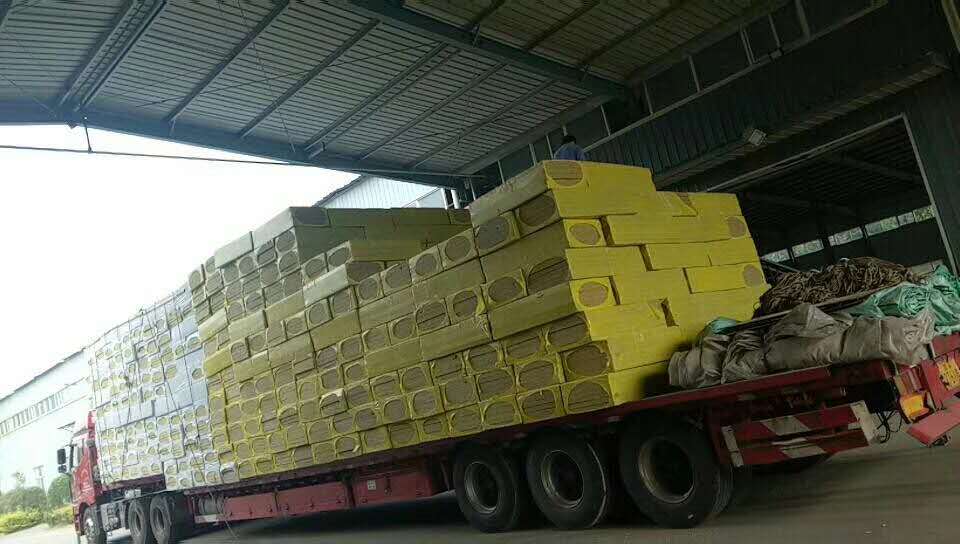
Rockwool
Rockwool Production Line,Rockwool Product,Rockwool Roll,Rockwool Pipe
HEBEI HENGDA SEALING MATERIALS CO.,LTD. , https://www.hengdasealing.com